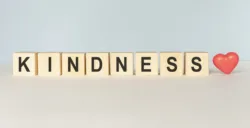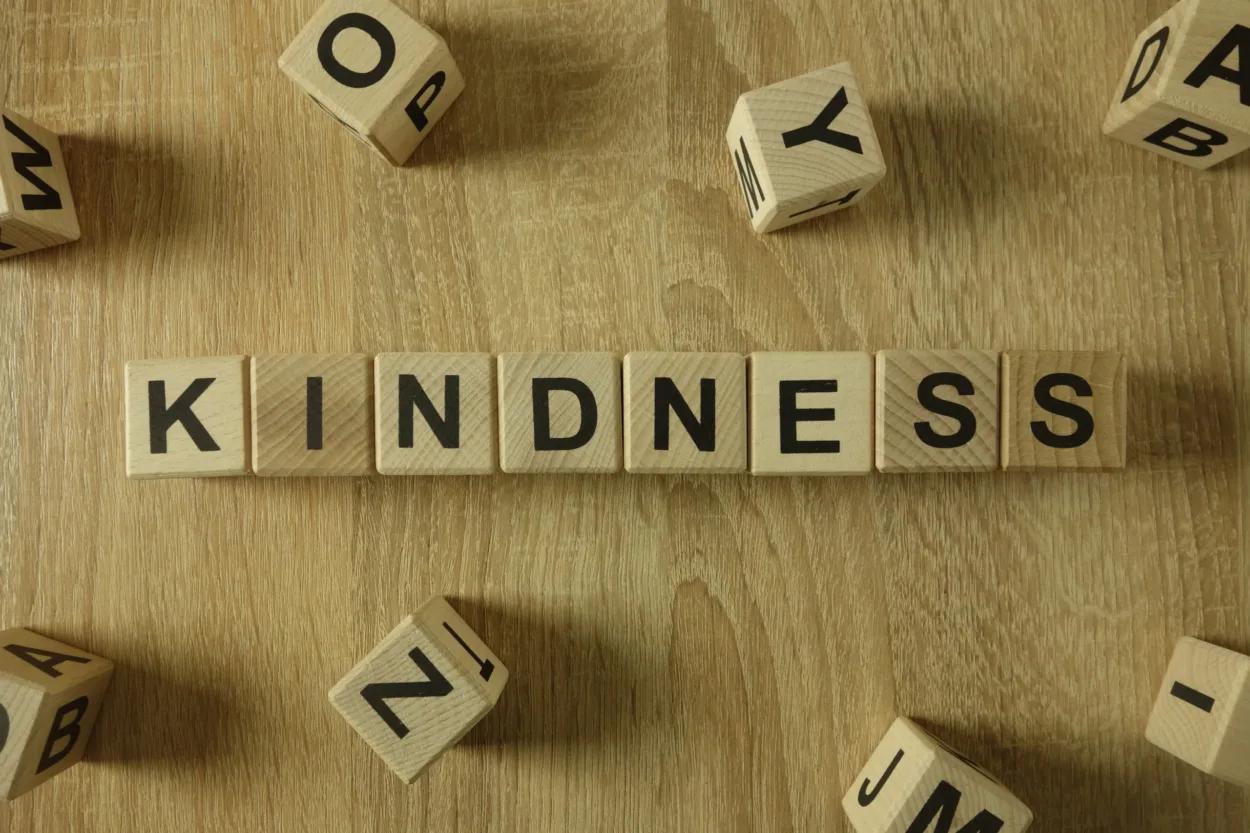
Kindness and gratitude are concepts we grow up hearing about — as children, we’re instructed to treat people with kindness and to show gratitude by saying, “Thank you.”
As adults, however, we often forget to practice kindness and gratitude; while we might say, “Thanks,” how often are we sincere about it? How often do we intentionally incorporate acts and words of kindness into our days?
Upon examination, it’s probably not as often as we’d like. But, practicing acts of kindness and gratitude is important, not just because it’s something we learned as a kid, but because it has significant positive impacts on our mental health.
The benefits of kindness and gratitude
Taking a moment to consider kindness and gratitude, it might become apparent how times when you were treated kindly or when you felt incredibly grateful really stand out to you. This might be due to the fact that witnesses of true kindness and gratitude are few and far between; more likely it’s a witness to the fact that these virtues have strong, definite impacts on our mental health.
Kindness is all about putting the needs of others before your own — quite a countercultural concept in a society all about “you doing you.” But true kindness is recognizing the needs of the people around you and taking an extra minute to help meet those needs. By intentionally being present to others, you’ll feel less isolated, more perceptive and perhaps even less stressed.
Gratitude is not only an appropriate reaction to kindness but a way by which you can transform persistent negative thoughts into positive thoughts. By practicing gratitude, you will find that your outlook on life, the way you perceive and experience even the smallest things, completely changes for the better.
Practicing kindness
Practicing kindness has numerous benefits, including:
- Boosting endorphins and positively impacting your brain
- Helping reduce loneliness and fostering a sense of belonging
- Decreasing cortisol to reduce stress
- Increasing self-esteem, compassion and empathy
- Creating a chain reaction — when you are kind to another, they may respond by also striving to be kind to those they encounter
There are a number of ways you can practice kindness and experience these benefits, including:
- Reach out to a family member or friend who might be lonely or who you haven’t spoken with in a while
- Volunteer for a local organization you are passionate about, such as a botanical garden, zoo, humane society, library or nursing home
- Consider becoming a mentor at your church or school and share your skills or experience with those who are struggling
- Start a club of some kind and bring together passionate people to start fostering a community with similar goals and ideas
- Participate in a fundraiser, such as a race, to raise money for a good cause
- Pause before responding — your actions and words (even those said online) can have a significant impact on another person
- Offer to help someone at work or school who you have a hard time being around — take time to learn a bit more about them
- Take time for some self-care, too — if you’re not filling yourself up as well, you won’t have much to give to others
Kindness takes no money to practice, but the way in which you will be rewarded is insurmountable.
Practicing gratitude
Practicing gratitude, like kindness, has many benefits for one’s mental health and for one’s life in general. The benefits of gratitude include:
- Increased positivity, generosity and forgiveness
- A greater appreciation for both routine and unique experiences
- Improvement of relationships
- Better sleep quality and increased energy
- Decreased symptoms of anxiety and depression
- Positive change of perspectives and an increased ability to seek the positive
- Reduced stress
Gratitude is not difficult to practice so long as you give it the time and energy it deserves. You can practice gratitude in various ways, including:
- Using a gratitude journal, where you write down three to five things you were grateful for during your day
- Writing thank you notes, not just for gifts, but for anything someone did for you for which you want to thank them sincerely
- Letting the people in your life who you appreciate know it! Thank them for the way in which they improve your life, and thank them often
- Praying — those who prioritize faith often foster gratitude by thanking God for the gifts and blessings he has provided in their life
- Saying thanks before meals, for those who made the food and for those who are about to share it
- Writing down the things you are grateful for on a weekly basis
Of course, this list is far from exhaustive, and anyway in which you can practice gratitude should be included in your routine.
Increasing mental health through kindness and gratitude
Practicing kindness to others and gratitude for the blessings in your life can significantly improve your mental health and well-being. To get in touch with a therapist for further ways to boost your mental health, contact The Light Program today.





